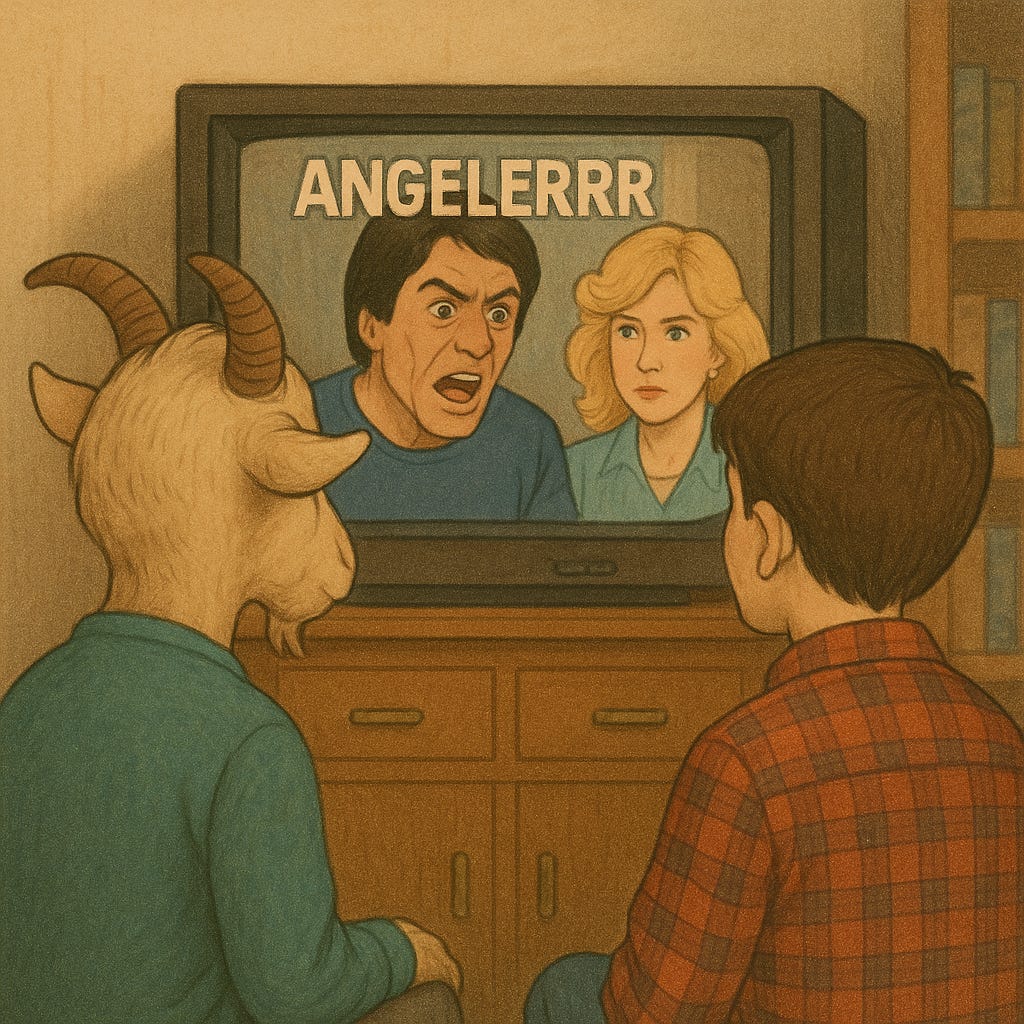If you grew up as a latchkey kid during the 80s, you almost certainly watched Who’s the Boss reruns on TV. ABC ran them during the day from 1987 to 1988, and I remember watching shows across the street at Jason’s house, after we had both gotten off the bus from school.
Even though Jason had cable TV, there just weren’t that many decent things to watch, so sitcom reruns were a prime 4:30 PM activity for us. We might play Sega or draw comic book covers, then watch some TV, and then go outside to throw a ball around or something.
While sitcoms would initially air once a week, syndicated sitcoms were on the air every day. Who’s the Boss became intimately familiar to us that year.
Every episode had its trademark moments. Tony would always come across as gruff but street-smart, while Angela had a more urbane intelligence, but lacked some of Tony’s real-world common-sense wisdom.
While the real Tony Danza had been a professional boxer before his break in Hollywood, the character he played—Tony Micelli—was a retired professional baseball player looking for a job. He finds one in the home of Angela Bower, an ad executive who lives with her incredibly flirtatious mother, Mona.
Tony becomes a live-in housekeeper, and his daughter Samantha (Alyssa Milano) moves in. Shenanigans begin immediately based on the contrast in backgrounds and the subsequent way people see events unfolding. We see these little points of contrast throughout the show, and it’s one of the hallmarks.
One of the most obvious marks of contrast is Tony’s dialect. He’s from the “mean streets”, so he has a strong Brooklyn accent, while Angela and Mona have more sophisticated conversational palates. Besides a fancier sounding accent, they have a much wider vocabulary—although Tony is also familiar with his own subset of choice words.
If you read my title and watched the show, a part of you has been waiting for me to get to the part we got to see in every episode. Tony would inevitably get frustrated by something Angela had done: either he wouldn’t understand her sophisticated and urbane ways, or Angela had done something that utterly lacked common sense. Then, he would call her name, only it wouldn’t sound like her name to most ears.
It sounded like:
Angellllllllerrrrrrrrrrrrrr!
Sometimes, Tony would get upset with Mona’s behavior, too, so you got to hear Monerrrrrrrrrr! from time to time as well.
Tony’s unwillingness to modify his speech to fit in is a key element of the show. Today, people call this ability code-switching, but back then we just thought of it as a means of survival. You had to talk like the ruling class if you wanted to be a part of the ruling class, the rules of society seemed to say.
Tony’s refusal to code-switch on Who’s the Boss is a noteworthy aside, but I want to figure out why it sounds that way when he says Angela or Mona. Where does that intrusive R-sound come from? Is it only intrusive to my ears, or is it incorrect, as I thought when I was a kid?
Well… it’s complicated. There’s no doubt that the way Tony speaks is classic Italian-American, but it’s not necessarily limited to people of Italian descent. In fact, it’s probably better to think of this as a working class phenomenon, where people of all sorts of different ethnicities contributed to the classic Brooklyn accent.
Here’s the thing, though: if you didn’t speak with this dialect and you lived in Brooklyn, you got beaten up. That’s because if you spoke more like Angeler, you weren’t one of us—one of the people on the streets. If you weren’t physically beaten up, you were certainly ostracized.
People who grow up in this environment experience uphill battles when trying to speak the crisp, precise language of business. It’s not quite like learning a second language, but there are certainly similar elements with code-switching that add a second layer of mental effort for anyone who has to do it for a career.
Who’s the Boss brought all of this home to Americans during the 80s, including me. I got to listen to (and make fun of) a Brooklyn dialect every day, and I got to see a heartwarming comedy where people of different socioeconomic classes overcame their differences to share a common humanity.



the best business leaders I worked with had plain, straightforward communications styles, avoiding corporate bingo-lingo. It's easy to muddle the message and so I always fought the urge to diverge into corp-speak (I still cringe when anyone says the are 'super-excited'). It's actually harder to talk straight and sure, you gotta establish cred first, but people pay more attention to you when you don't spout bs.